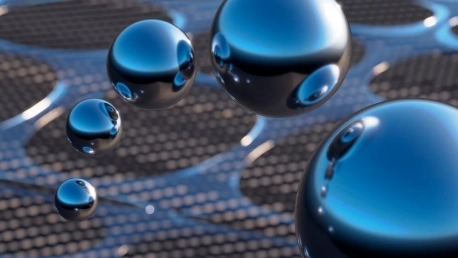Nanotechnology is revolutionizing the packaging industry by enhancing the protective and sustainable features of packaging materials. Through nanotechnology, manufacturers can create new packaging that not only extends the shelf life of food and other perishable goods but also introduces significant environmental benefits.
Enhancing Barrier Properties
Extended Shelf Life through Nanocomposites
Nanocomposites, engineered by incorporating nanoparticles into packaging materials, strengthen the barrier against external elements such as moisture and oxygen. These improved barriers help prevent spoilage and extend the shelf life of the contents. By ensuring products remain fresh for longer, these advanced materials help reduce food waste, a challenge that profoundly impacts both the economy and the environment. The intricate engineering of nanoparticles within traditional packaging substrates results in a new class of materials that redefine the standards of product preservation.
Innovative Nano-coatings
Apart from integrating nanoparticles into the structure of packaging materials, nanotechnology has also led to the development of nano-coatings. These ultra-thin layers can be applied to the surface of the packaging, offering an additional protective shield. This innovation is particularly significant for the delivery of sensitive products that require stringent control of their environments. The novel coatings are crucial in maintaining product integrity throughout the supply chain—from transportation to the end consumer—thereby significantly reducing spoilage-induced losses.
Sustainability Benefits and Safety Considerations
Reduced Environmental Footprint
The use of nanotechnology in packaging also facilitates the production of thinner, lighter packages. Such advancements mean that fewer resources are consumed in the creation of packaging, and the reduction in material leads to a decrease in waste. The lightweight nature also contributes to lower transportation emissions, which is a direct benefit to the environment. Addressing the critical issues of sustainability, nanotechnology in this capacity aids in the global effort to reduce carbon footprints, making the entire lifecycle of packaging more eco-friendly.
Safety and Regulation of Nanomaterials
Nanotechnology is a game-changer in the world of packaging, offering a host of enhancements that shape the future of material protection and eco-friendliness. Incorporating nanoscale materials, industry leaders develop packaging solutions that significantly prolong the freshness of food and other perishables. This leap forward benefits consumers by improving product longevity and has far-reaching environmental implications.Advanced nano-packaging reduces waste by keeping goods usable for longer periods, thereby diminishing the frequency of restocking and the resources used in production and distribution. These nano-enhanced materials can also be engineered to be more lightweight, cutting down on shipping costs and energy consumption.Moreover, nanotechnology allows for the reduction of harmful packaging substances and the increase in biodegradability, easing the burden on landfills. Through this innovation, packaging is not just a container but a smart, sustainable system that reflects a commitment to preserving the quality of products and the health of the planet. As nanotechnology evolves, the promise of smarter, more sustainable packaging seems poised to bring about a significant shift in consumer goods and their environmental footprint.









